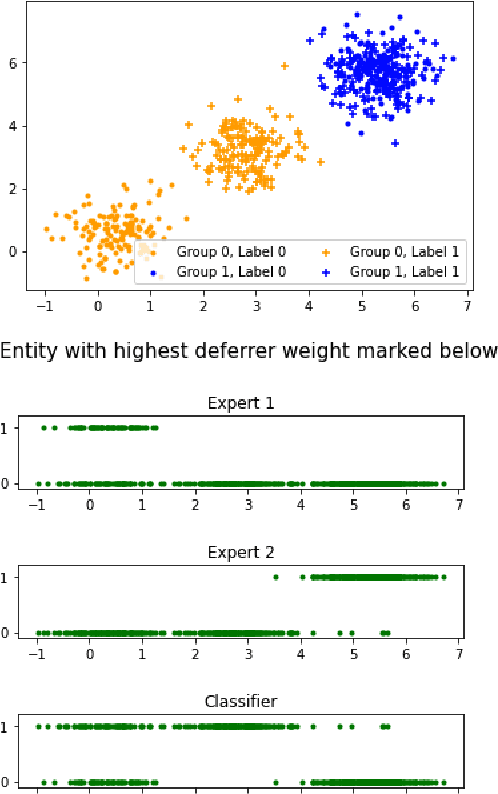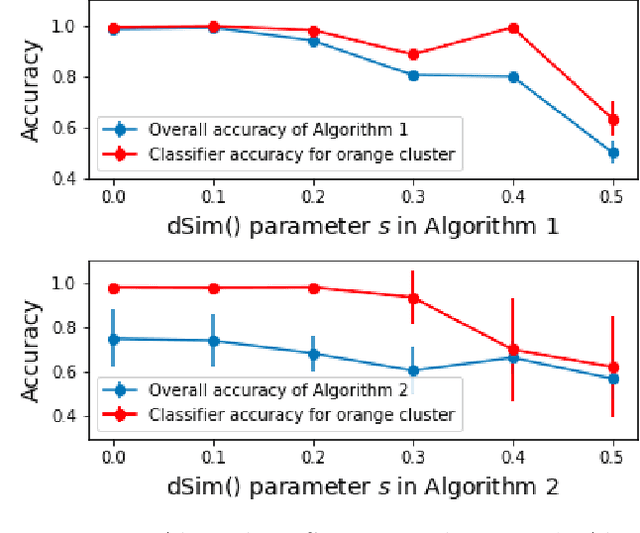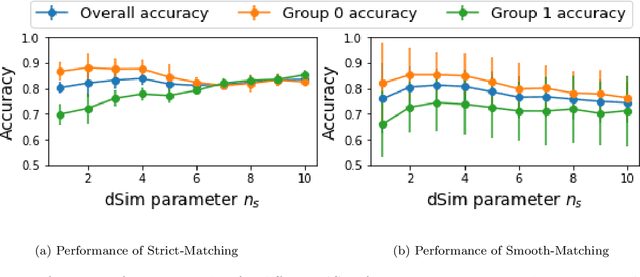Designing Closed Human-in-the-loop Deferral Pipelines
Paper and Code
Feb 09, 2022



In hybrid human-machine deferral frameworks, a classifier can defer uncertain cases to human decision-makers (who are often themselves fallible). Prior work on simultaneous training of such classifier and deferral models has typically assumed access to an oracle during training to obtain true class labels for training samples, but in practice there often is no such oracle. In contrast, we consider a "closed" decision-making pipeline in which the same fallible human decision-makers used in deferral also provide training labels. How can imperfect and biased human expert labels be used to train a fair and accurate deferral framework? Our key insight is that by exploiting weak prior information, we can match experts to input examples to ensure fairness and accuracy of the resulting deferral framework, even when imperfect and biased experts are used in place of ground truth labels. The efficacy of our approach is shown both by theoretical analysis and by evaluation on two tasks.
 Add to Chrome
Add to Chrome Add to Firefox
Add to Firefox Add to Edge
Add to Edge